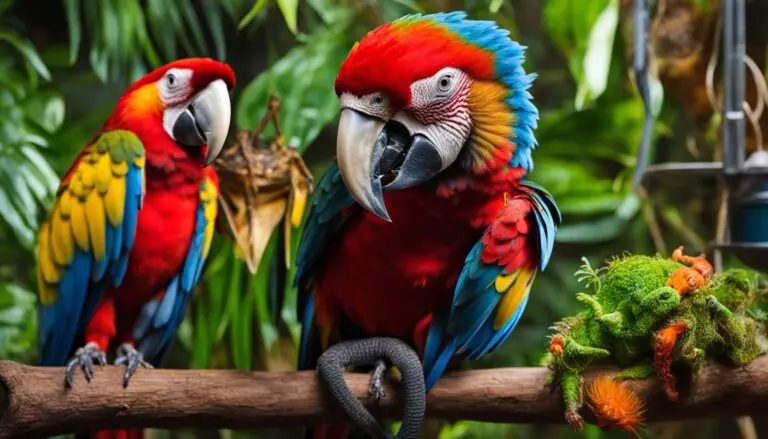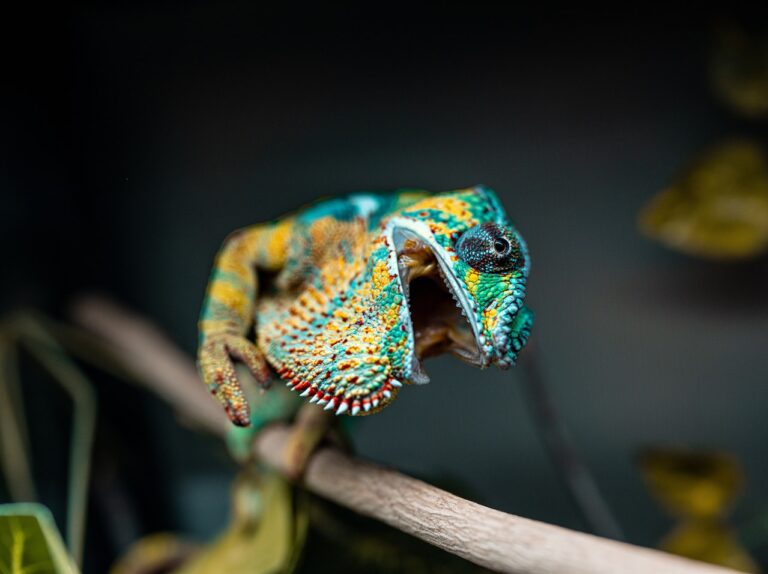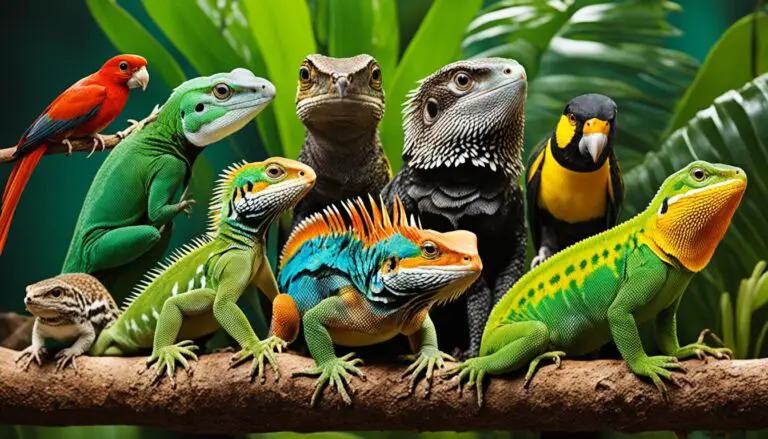Exotic Pet Care for Pregnant Pets (Guide)
Welcome to our comprehensive guide on exotic pet care for pregnant pets. Taking care of your pregnant exotic pet is crucial for their health and the health of their offspring. During pregnancy, your pet’s needs may change, and it’s important to provide them with the right care, nutrition, and environment for a successful pregnancy journey.
In this guide, we will discuss the various aspects of caring for pregnant exotic pets, including prenatal care, nutrition, creating a safe environment, recognizing pregnancy progression, maintaining pet health, vaccinations, and addressing behavioral changes. By following these guidelines, you can ensure the well-being of your pregnant exotic pet and support a positive pregnancy experience for both you and your pet.
Whether you have a pregnant reptile, bird, small mammal, or any other exotic pet, this guide will provide you with the information you need to support their unique needs during the pregnancy period. Let’s dive in and explore the world of exotic pet care for pregnant pets.
Key Takeaways:
- Proper care and attention are essential for the health of pregnant exotic pets.
- Prenatal care, including veterinary consultations, is crucial during pregnancy.
- Nutrition plays a vital role in supporting the well-being of both the mother and the offspring.
- Creating a safe environment will ensure the comfort and security of your pregnant exotic pet.
- Recognizing pregnancy progression and understanding signs of labor is important for timely care.
Understanding the Essentials of Exotic Pet Pregnancy Care
Proper care during pregnancy is vital for the health and well-being of exotic pets. This section will delve into the risks associated with pregnant exotic pets, the basics of prenatal care, and the significance of veterinary consultation during pregnancy.
Risks Associated with Pregnant Exotic Pets
Pregnancy comes with inherent risks, even for exotic pets. It is essential for pet owners to be aware of these risks to ensure the safety of both the mother and her offspring. Common risks include:
- Complications during gestation
- Birth defects
- Difficult labor
- Infections
- Nutritional deficiencies
- Maternal aggression
Prenatal Care Basics for Exotic Pets
Prenatal care plays a crucial role in maintaining the health of pregnant exotic pets. Here are some essential tips for providing proper prenatal care:
- Ensure a balanced diet: Providing nutritious and appropriate food is essential during pregnancy to support the growth and development of the offspring.
- Create a comfortable nesting area: Exotic pets need a safe and cozy space to give birth and raise their young. Prepare a suitable nesting area equipped with proper bedding and temperature control.
- Monitor the pregnancy progression: Regularly observe and document the physical changes in your pet to track the progression of pregnancy. This will help identify any potential issues or abnormalities.
- Administer necessary supplements: Consult with a veterinarian to determine if any additional supplements, such as vitamins or minerals, are required for the pregnant pet.
Significance of Veterinary Consultation during Pregnancy
Veterinary care is crucial for the well-being of pregnant exotic pets. Regular check-ups with a veterinarian experienced in exotic pet care are highly recommended to ensure a healthy pregnancy. A veterinarian can:
- Perform thorough examinations to monitor the pet’s health
- Provide necessary vaccinations to protect the mother and offspring
- Offer guidance on nutrition, exercise, and overall care during pregnancy
- Detect and address any potential complications early on
Consulting a veterinarian throughout the pregnancy journey ensures that the pet receives proper medical attention and increases the chances of a successful and healthy pregnancy.
Optimizing Nutrition for Pregnant Exotic Pets
Proper nutrition plays a crucial role in ensuring the health and well-being of pregnant exotic pets. Providing the right balance of nutrients is essential for both the mother and the developing offspring. Here are some tips and guidelines to optimize the diet of pregnant exotic pets:
- Consult a veterinarian: Before making any adjustments to your pet’s diet, it is important to consult a veterinarian who specializes in exotic animals. They can provide specific recommendations based on the species, size, and individual needs of your pet.
- Increase protein intake: Protein is an essential nutrient for pregnant pets, as it aids in growth and development. Include high-quality protein sources, such as lean meats or balanced commercial pet foods, in their diet. However, avoid feeding raw or undercooked meat, as it may contain harmful bacteria.
- Provide a variety of fresh fruits and vegetables: Include a wide range of fruits and vegetables in your pet’s diet to ensure they receive a balanced array of vitamins and minerals. However, be cautious of toxic foods that may be harmful to certain species. Consult your veterinarian for a safe and suitable list of fruits and vegetables for your pet.
- Supplement with calcium: Calcium is particularly important for pregnant pets, as it aids in bone development and milk production. Consider adding calcium supplements to their diet, but only under the guidance of a veterinarian.
- Ensure access to clean water: Pregnant exotic pets require an ample supply of fresh, clean water. Make sure to provide a water source that is easily accessible at all times.
- Monitor food intake and weight: Keep track of your pet’s food intake during pregnancy. While it is normal for their appetite to increase, excessive weight gain can lead to complications. Consult your veterinarian for guidance on monitoring your pet’s weight and adjusting their diet accordingly.
Remember, optimizing nutrition for pregnant exotic pets is vital for their overall health and the successful development of their offspring. Consult with a veterinarian to create a diet plan that meets their individual nutritional needs.
Creating a Safe Environment for Exotic Pets During Pregnancy
It is crucial to create a safe and comfortable environment for your exotic pets during pregnancy. Providing them with the right nesting area and maintaining proper temperature regulation is essential for their well-being. In this section, we will discuss the steps you can take to ensure a safe environment for your pregnant exotic pets.
Preparing the Ideal Nesting Area
Creating a suitable nesting area is vital for pregnant exotic pets as it provides them with a secure and comfortable space to give birth and care for their offspring. Here are some tips to help you prepare the ideal nesting area:
- Choose a quiet and secluded location where your pet can have privacy during labor and nursing.
- Provide nesting materials such as soft bedding, shredded paper, or leaves to create a cozy environment.
- Ensure the nesting area is spacious enough to accommodate your pet and her future offspring.
- Avoid placing the nesting area near areas with high foot traffic or loud noises, as this can cause stress to your pet.
By preparing the ideal nesting area, you are providing a safe and comfortable space for your pregnant exotic pet to give birth and care for her young.
Temperature Regulation and Comfort Measures
Pregnant exotic pets require a stable and suitable temperature range to ensure their well-being and the healthy development of their offspring. Here are some tips for temperature regulation and comfort measures:
- Monitor the temperature in the pet’s living environment regularly to ensure it remains within the recommended range for their species.
- Provide heat sources such as heat lamps or heating pads to create warm spots within the enclosure.
- Offer hiding places or sheltered areas where the pet can retreat to if they feel too warm or too cold.
- Ensure proper ventilation in the pet’s living area to maintain optimal air quality and prevent any buildup of humidity or odors.
By maintaining temperature regulation and implementing comfort measures, you are creating a safe and pleasant environment for your pregnant exotic pet.

Recognizing Pregnancy Progression and Labor in Exotic Pets
As a pet owner, it is important to familiarize yourself with the progression of pregnancy and the signs of labor in exotic pets. By understanding the physical changes and behaviors exhibited by pregnant exotic pets, you can provide the appropriate care and support during this crucial time.
During the early stages of pregnancy, it may be challenging to visually identify an exotic pet’s pregnancy. However, as the pregnancy progresses, certain physical changes become more noticeable. These changes include weight gain, enlarged abdomen, and increased nipple size. It is essential to document and monitor these changes closely to gauge the progression of pregnancy.
Tip: Regularly weigh your pet and keep track of their weight gain. This can help you gauge the development of the fetuses and ensure their overall health.
Aside from physical changes, a pregnant exotic pet may exhibit behavioral changes as well. These changes can include nesting behaviors, increased restlessness, and changes in appetite. It is crucial to create a calm and comfortable environment for your pet to meet their nesting needs, as this can indicate that labor is approaching.
When labor begins, your pet may exhibit signs such as increased vocalization, nesting activity, restlessness, and pacing. These signs indicate that your pet is preparing to give birth. It is important to provide a quiet and private space for your pet to give birth and monitor the process closely to ensure everything progresses smoothly.
By understanding the progression of pregnancy and recognizing the signs of labor, you can ensure the well-being of your exotic pet during this crucial period. Providing the necessary support and care will help your pet have a safe and successful labor experience.
Maintaining Exotic Pet Health During Pregnancy
Ensuring the health and well-being of your pregnant exotic pet is crucial to their overall pregnancy journey. By monitoring their weight and growth in fetuses and addressing common health concerns, you can help support a healthy pregnancy and give your pet the best care possible.
Monitoring Weight and Growth in Fetuses
Regular monitoring of your exotic pet’s weight and the growth of the fetuses is essential during pregnancy. This allows you to track their progress and ensure they are developing as expected. Your veterinarian can provide guidance on the appropriate weight gain and measurements to look for during different stages of pregnancy.
Tip: Keep a record of your pet’s weight and fetal development to share with your veterinarian during check-ups. This can help them identify any issues that may arise and provide appropriate recommendations.
Addressing Common Health Concerns
Pregnant exotic pets may experience health concerns that require special attention. It’s essential to be aware of potential issues and take prompt action to address them. Some common health concerns in pregnant exotic pets include:
- Gastrointestinal issues
- Respiratory infections
- Nutritional deficiencies
- Parasite infestations
- Complications during labor
Consulting with a veterinarian who specializes in exotic pets is crucial to identify and address these health concerns effectively. Regular veterinary check-ups and open communication about any changes in your pet’s behavior or physical well-being are essential to ensure prompt and appropriate care.
Caution: Do not administer any medications or treatments to your pet without consulting a veterinarian first. Improper use of medications can be harmful to both the mother and the unborn offspring.
By maintaining the health of your pregnant exotic pet through weight and growth monitoring and addressing common health concerns, you can provide them with the care and support they need during this critical time.
Vaccinations and Preventive Care for Pregnant Exotic Pets
Ensuring the health and well-being of pregnant exotic pets is of paramount importance. Vaccinations and preventive care play a crucial role in safeguarding the pets and their offspring from potential diseases and complications.
During pregnancy, it is essential to consult with a veterinarian to determine the appropriate vaccines for the exotic pet. Vaccinations can help protect the mother and the developing fetuses from infectious diseases that could be detrimental to their health.
Some common vaccinations for pregnant exotic pets include:
- Viral vaccines – These vaccines protect against viral infections such as distemper and rabies, which can be life-threatening for the pets and their offspring.
- Bacterial vaccines – These vaccines target bacterial infections that may pose a risk to the health of the pregnant pet and her babies.
- Parasitic vaccines – These vaccines help prevent parasite infestations that can harm the health of the mother and her growing fetuses.
In addition to vaccinations, preventive care measures should also be taken to ensure the overall well-being of the pregnant exotic pet. This includes:
- Maintaining a clean and hygienic living environment for the pet to reduce the risk of infections.
- Providing a balanced and nutritious diet specifically designed for pregnant exotic pets.
- Regularly monitoring the pet’s weight and growth to ensure proper development.
- Offering mental stimulation and exercise to keep the pet active and engaged.
- Implementing appropriate stress-reducing techniques to promote a calm environment for the pregnant pet.
By prioritizing vaccinations and preventive care, pet owners can significantly contribute to the well-being and long-term health of their pregnant exotic pets. Consulting with a veterinarian is crucial to develop an individualized care plan that meets the specific needs of the pet and ensures a safe and healthy pregnancy.
Addressing Behavioral Changes in Pregnant Exotic Pets
Pregnancy can bring about significant behavioral changes in exotic pets. Understanding and addressing these changes is crucial for ensuring their well-being during this transformative time. Here are some tips to help you navigate the behavioral changes in your pregnant exotic pets:
- Provide a calm and stress-free environment: Pregnant exotic pets may be more sensitive to their surroundings. Create a peaceful space that is free from loud noises and disturbances to help them feel secure and reduce stress levels.
- Stick to a routine: Maintain a consistent daily routine for your pet during pregnancy. Routine helps them feel secure and provides a sense of stability, which can be particularly important during this time of change.
- Monitor and address anxiety: Pregnancy can sometimes cause anxiety in exotic pets. Watch for signs of restlessness, pacing, or excessive grooming. If you notice these behaviors, consult with a veterinarian who specializes in exotic pets for guidance on managing anxiety.
- Provide ample hiding spaces: Pregnant exotic pets may seek seclusion and privacy. Offer hiding spots like cozy dens or covered areas within their enclosure to support their natural instincts.
- Implement positive reinforcement training: Training methods based on positive reinforcement can be effective in addressing behavioral changes. Reward desired behaviors to encourage adaptations and minimize any negative or disruptive behaviors that may arise.
- Offer mental and physical stimulation: Engage your pet with interactive toys, puzzle feeders, and gentle play sessions to provide mental and physical stimulation. This can help alleviate boredom and prevent the development of unwanted behaviors.
Remember, each exotic pet is unique and may exhibit different behavioral changes during pregnancy. Observing, understanding, and addressing these changes with patience and compassion will contribute to the well-being and happiness of both the pet and its owner.

Conclusion
In conclusion, proper care and attention are essential for maintaining the health and well-being of pregnant exotic pets. Throughout this guide, we have explored various aspects of exotic pet care during pregnancy, including prenatal care, nutrition, creating a safe environment, recognizing pregnancy progression, maintaining pet health, vaccinations, and addressing behavioral changes.
By following the guidelines and tips provided, pet owners can ensure that their unique companions receive the care they need. Consulting a veterinarian during pregnancy is vital as they can offer expert advice tailored to your pet’s specific needs. Additionally, monitoring weight and growth in the fetuses, addressing common health concerns, and providing vaccinations and preventive care are crucial for the overall well-being of the mother and her offspring.
Recognizing the signs of labor and understanding the physical changes and behavioral differences that come with pregnancy will help pet owners be more prepared. Creating a safe and comfortable environment, including an ideal nesting area and proper temperature regulation, is necessary to ensure the welfare of the pregnant pet and its future offspring. Addressing any behavioral changes and providing appropriate handling and training techniques will help provide a stress-free experience for both the pet and the owner.
In summary, taking care of pregnant exotic pets requires dedication, knowledge, and attention to detail. With the right information and proper care, you can ensure the health and happiness of your expecting pet. Remember, you play a pivotal role in providing a safe and nurturing environment for your exotic pet throughout their pregnancy journey.
Source Links
- https://onprem.marchofdimes.org/pregnancy/pets-and-other-animals-during-pregnancy.aspx
- https://www.everand.com/book/148607867/Management-of-Pregnant-and-Neonatal-Dogs-Cats-and-Exotic-Pets
- https://www.mobapbaby.org/Pregnancy-Guide/Ensuring-a-Healthy-Pregnancy/Diseases-from-Your-Pets
Peter Stones is the founder of Exotic Pets Place, the leading online resource for exotic pet care information.
With over 10 years of hands-on exotic pet ownership experience, he is deeply passionate about sharing his expertise to help others properly care for their unusual pets.
When he's not writing extensively researched articles or connecting with fellow exotic pet enthusiasts worldwide, you can find Peter at home tending to his own beloved menagerie of exotic animals.

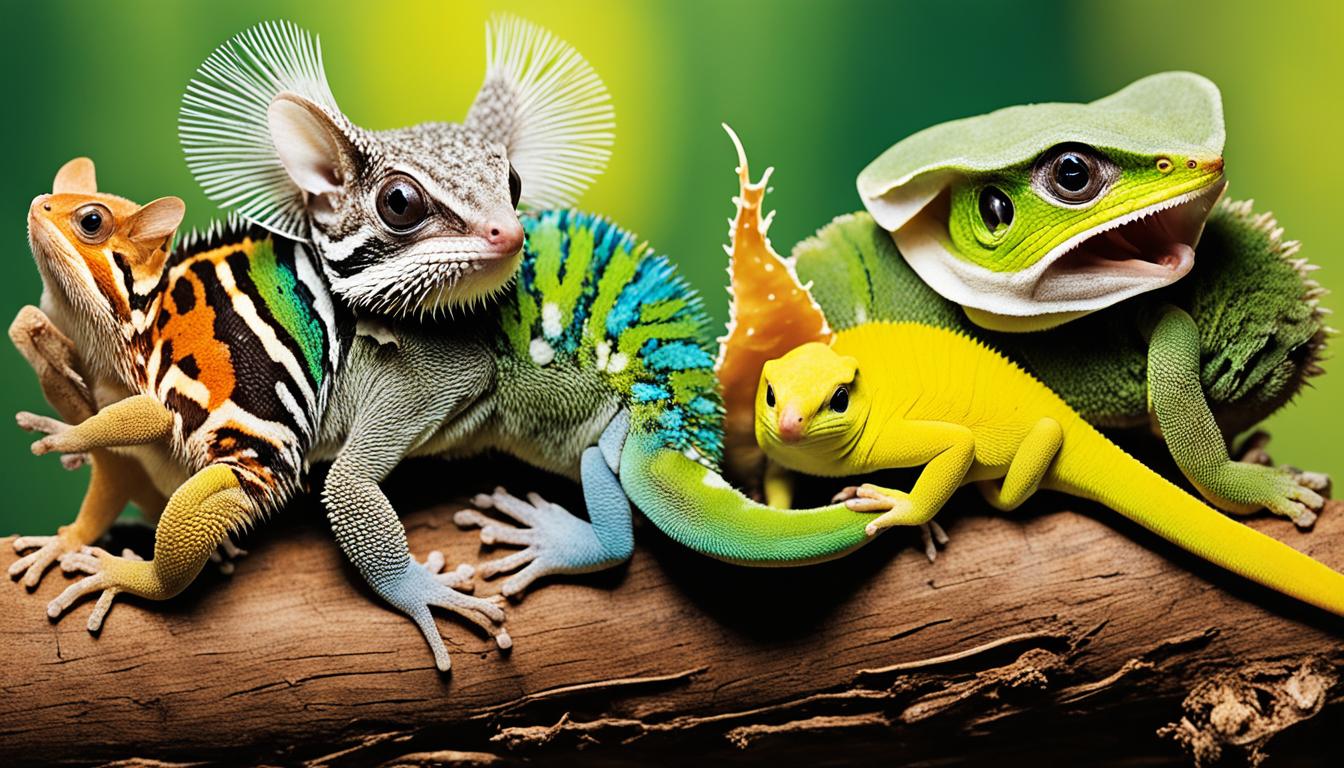
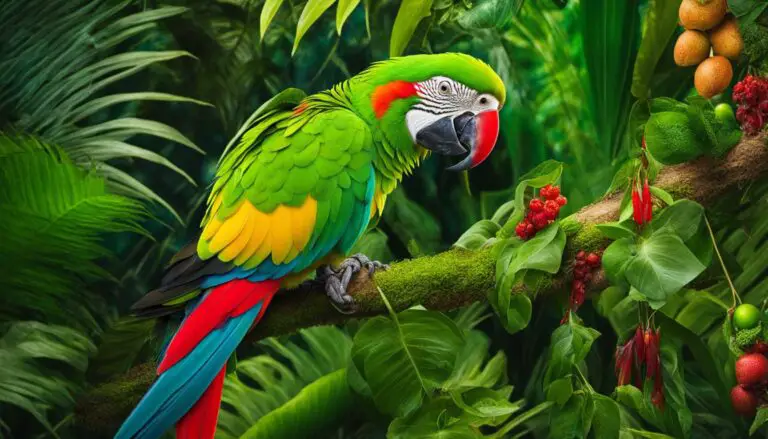
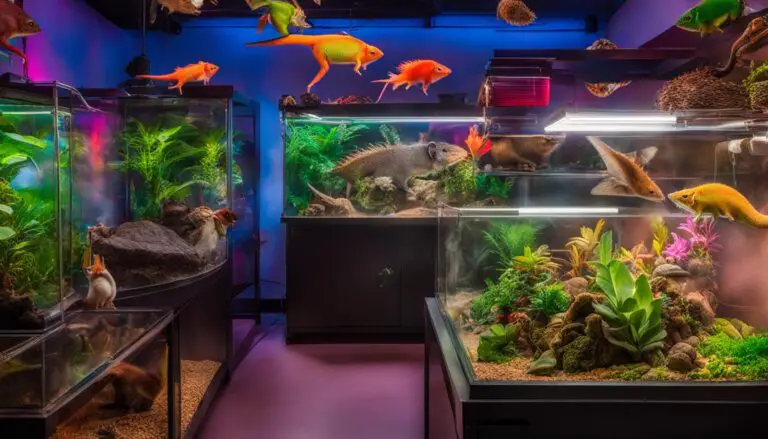
![How to Handle Your Exotic Pet During Extreme Weather [Vital Tips], a thunderstorm near a beach](https://exoticpetsplace.com/wp-content/uploads/2023/06/How-to-Handle-Your-Exotic-Pet-During-Extreme-Weather-Vital-Tips-a-thunderstorm-near-a-beach-768x576.jpg)
